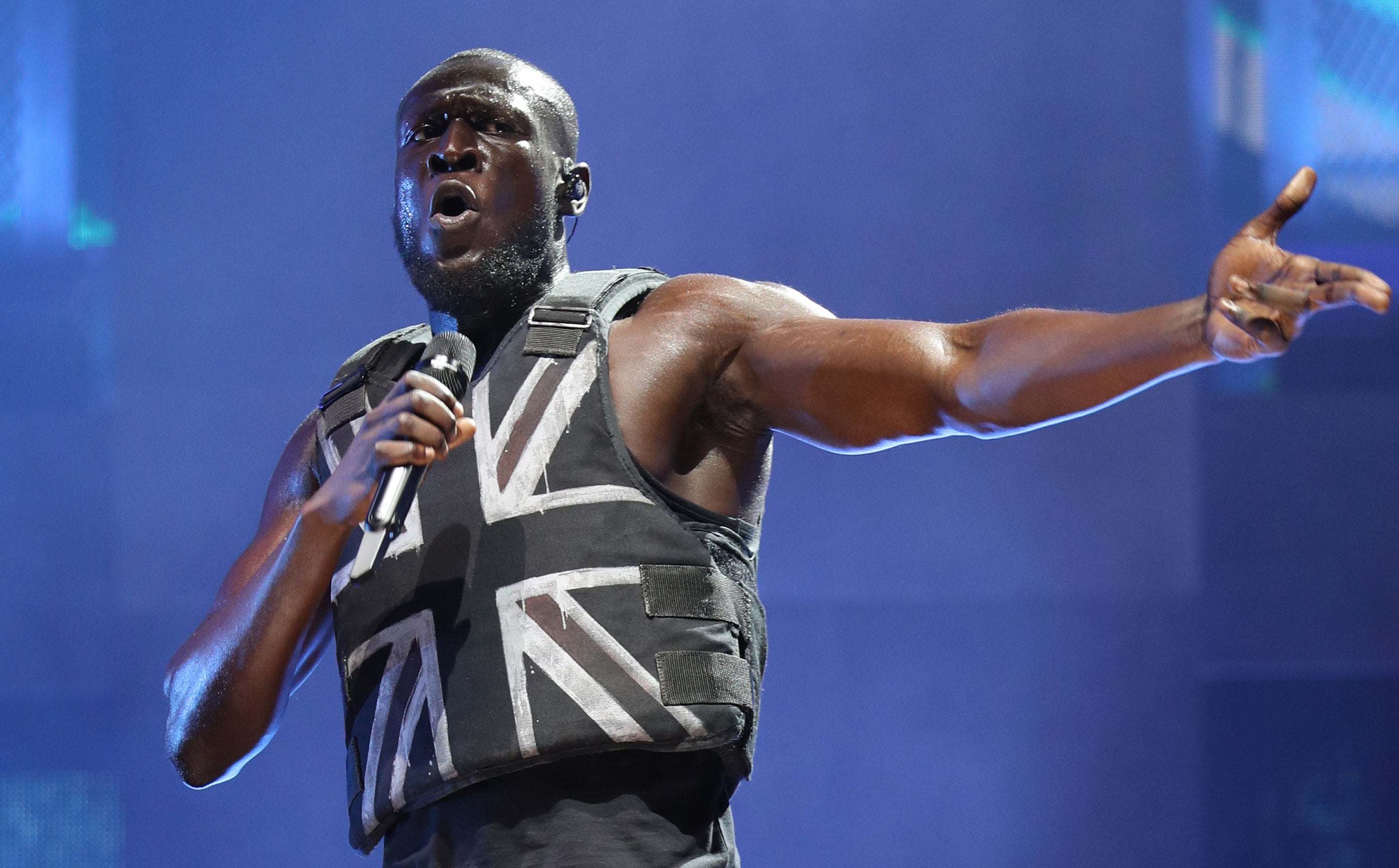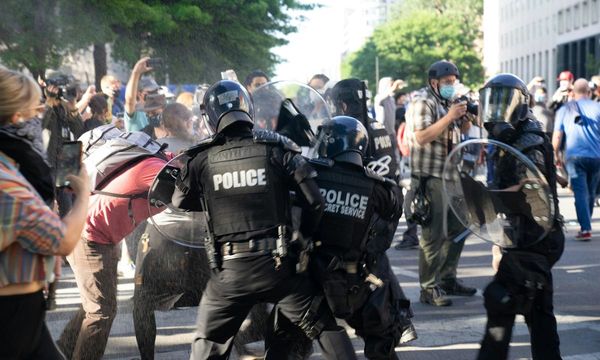PM: No Excuse For BBC Hate” reads one tabloid headline. “Why Did BBC Not Pull Plug On Vile Chants” screams another. “Now Arrest Punk Band Who Led ‘Death To Israelis’ Chant At Glastonbury” erroneously quotes a third.
It’s fair to say that London duo Bob Vylan leading a chorus of “Death, death, death to the IDF” at this weekend’s edition of the legendary Pilton shindig has stirred up the most outraged response to any set in the festival’s history: widespread condemnation from the government, press and Eavis farmhouse alike.
"Their chants very much crossed a line,” read a statement from the Glastonbury organisers themselves, and as someone with over three decades’ worth of Glasto dirt under my fingernails, I firmly agree that the sight of crowds enthusiastically chanting for any kind of bloodshed absolutely goes against the peace-loving, humanitarian ethos of the festival.
I’d assume that, like myself, the vast majority of Glasto-goers, past and present, are generally appalled at the idea of calling down death on anyone, and only wish that everyone involved in all current conflicts felt the same way – and that they’re currently lying in a wicker yurt, weaving such a sentiment into a giant hemp peace blanket. Neil Young’s closing song “Throw Your Hatred Down” spoke far more clearly for the Avalonian majority.
Those other Glasto stream provocateurs, Kneecap, would undoubtedly argue that the establishment was far faster to condemn Vylan’s chant than the treatment of Palestinian civilians, however. And as a statement from Amyl and the Sniffers pointed out today, the entire weekend was awash with acts vocally taking stands against genocide in Gaza.
The Australian punks accused the media of “trying to make it look like just a couple of isolated incidents and a couple of ‘bad bands’, so it appears the public isn’t as anti-genocide as it is”.
Pretty much every act I saw at this year’s festival dropped a “Free Palestine” in somewhere.
“The status quo has shifted majorly,” the Sniffers summarised – “people are concerned and desperate for our governments to listen.”
Amid such a fervent media furore, many seem frustrated that the dark spectre of politics has infiltrated their cosy sofa weekend watching Rod Stewart – which only highlights how disconnected the BBC-fied Glastonbury experience is from the fundamental meaning and history of the event.

Ever since Michael Eavis gave out free milk in 1970 in the name of humanitarian togetherness, Glastonbury has been deeply political.
In 1981, Eavis partnered with the Campaign for Nuclear Disarmament (CND), whose logo is still prominently placed at the top of the Pyramid Stage, with the aim of raising money for the organisation and promoting its message of nuclear disarmament.
Throughout the Eighties and early Nineties, it was a haven not just for the Green Fields’ hippies but for the otherwise outcast Traveller community – infusing the event with the politics of rebellion, environmentalism and social justice upon which its modern countercultural reputation was built.
Every year, the Greenpeace Field shouts about the latest developments in the climate emergency, and the Leftfield tent hosts speeches and discussions on a vast array of political issues. And throughout its history, Glastonbury has been the place where major bands and figures make major statements.
In 2005, Bob Geldof brought the Make Poverty History campaign to Worthy Farm. In 2017, the then leader of the Labour Party made a high-profile Pyramid Stage appearance to chants of “Oh, Jeremy Corbyn” – galvanising the youthful hope that had grown around him at the time. In 2022, Ukrainian president Volodymyr Zelensky crystallised the nation’s solidarity with his country with a powerful video message to the Pilton masses.
Waking up to the shock Brexit vote result in 2016, it was at Glastonbury that bands such as Bastille and Foals gave voice to Remoaner despair.

And, three years later, it was during his dazzling headline set that rapper Stormzy – clad in a monochrome union flag stab-proof vest – encapsulated the feelings of many in the nation when he got the vast, televised crowd chanting “f*** Boris”.
It may come as a shock to the TV audience that can bypass the politics pulsing from every corner of Worthy Farm each year (and particularly in 2025) with the flick of a red button, but brazen and confrontational stands on crucial issues of the day are what Glastonbury – and the passionate, sometimes angry young people who attend and play it – has always done. And will continue to do, especially now it’s a public platform commanding viewing numbers in the millions.
Glastonbury is far more than a big, flag-clogged gig on a farm – it's also a powerful source of righteous campaigning and high-profile tub-thumping, with many great and positive politicised moments under its belt.
We might not agree with everything that's said here – we might find some of it unacceptable and shocking – but let’s not be in any way surprised by it.
Despite the Bob Vylan furore, Glastonbury still belongs at the BBC
Keir Starmer used to stand up for the kinds of protesters he now labels as terrorists
Why allegations of BBC bias on Israel are becoming hard to reconcile
If AI kills off entry-level jobs, can the City survive?
‘Have more children’ – but who can afford to start a family, minister?
Why it’s time Wonder Woman was allowed to live her bisexual truth







